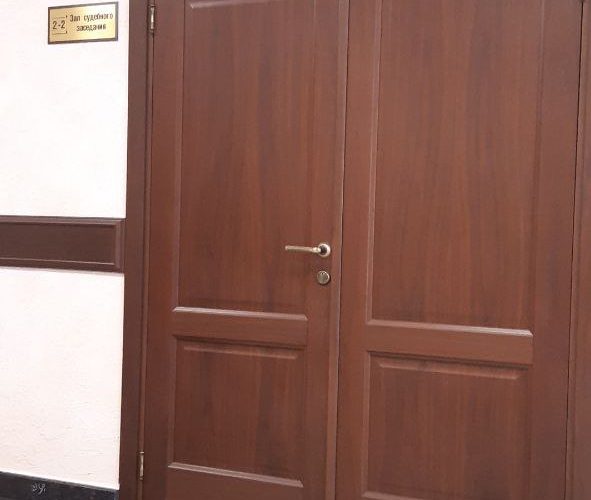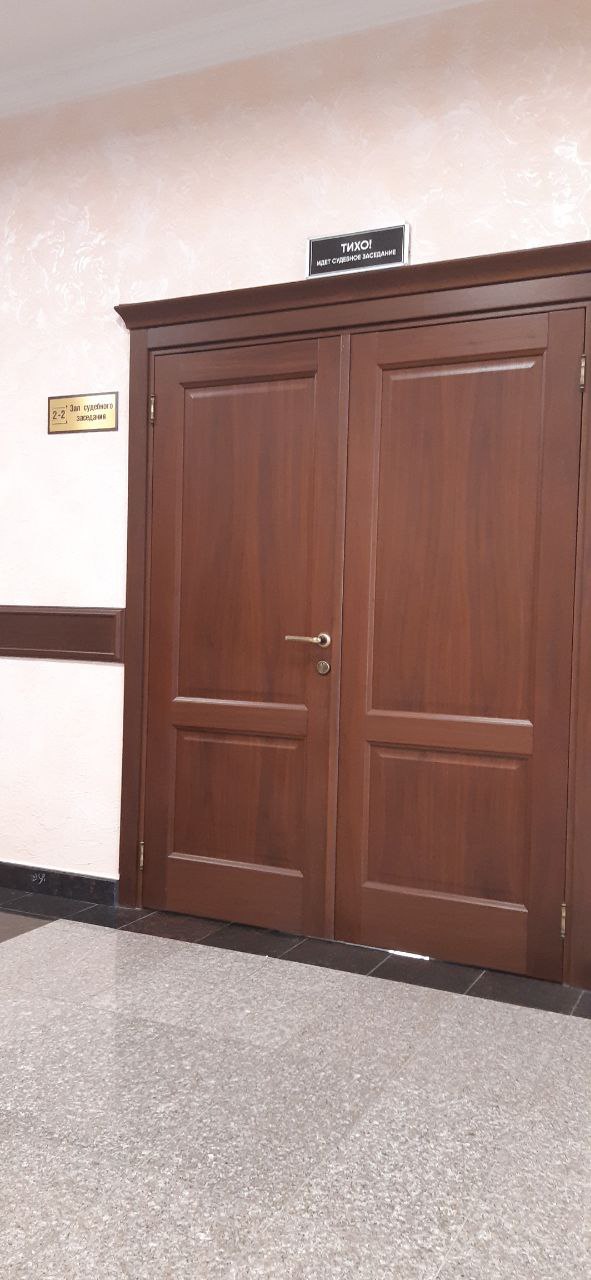

About the case: Anton Vladimirovich Cherednik, a serviceman of the Armed Forces of Ukraine, is accused under Article 278 of the Criminal Code of “violent seizure of power”, part 1 of Article 356 of the Criminal Code of “cruel treatment of civilians, use of prohibited means and methods in an armed conflict”, part 2 of Article 105 of the Criminal Code of “murder” and Article 205.3 of the Criminal Code of the Russian Federation of “training for terrorist activities”. According to the investigative committee, Cherednik shot a civilian for mispronouncing a phrase in Ukrainian.
The case is being heard by a panel consisting of: presiding judge Vyacheslav Alexeyevich Korsakov, Ilya Nikolaevich Bezgub, and Mukhamed Khasanbievich Kilyarovthe of the Southern District Military Court.
The session was delayed by 1.5 hours, during which some interesting information was gathered.
The AIF.ru journalist conversed with the appointed lawyer. It became known that the lawyer had inquired about Cherednyk’s health at the detention center. However, the inquiry was delayed and officially received an acknowledgment only on April 21, 2023 (with a response due in 30 days from that date). The lawyer had not met with the defendant again. Cherednyk had no contact with his relatives. He has an adult son (around 20 years old) in Krivoy Rog, but there was no communication with Cherednyk.
At 11:05, the lawyer was allowed into the courtroom for a discussion with the defendant.
At 11:20, the rest were invited into the courtroom. Present this time were the lawyer, a new prosecutor, three media representatives (AIF.ru, Interfax, RIA Novosti), myself, and one more observer. While waiting, the AIF.ru journalist recorded Cherednyk on the phone and simultaneously asked questions (about his health and whether his son or other relatives had been in contact). The same journalist asked the secretary to set up the screen for video conferencing. The secretary evasively responded, saying, “If there’s a video conference, you’ll be able to.” However, with a double meaning and a smile, he added, “But what if there isn’t?” It was evident that, compared to the previous session where the victim was questioned via video link, the equipment had not been prepared for video conferencing.
Near the “aquarium” where Cherednyk sat (closer to the court), the female escort in a bulletproof vest swayed from side to side, seemingly shifting her weight. There was a guy at the opposite end.
At 11:26, the panel of judges entered, and the presiding judge announced the continuation of the case, introducing the new prosecutor, Dina Patlidovna Danielyan.
The judge clarified the defense’s right to request withdrawal and asked if there was a need for it. The defense responded negatively. The judge then announced the composition of the judges and inquired about withdrawals from the prosecutor, who also responded negatively.
The court addressed the prosecutor: “Were you supposed to ensure the questioning of witnesses via video conference today?”
Prosecutor: “Efforts were made, as evidenced by the letter, but there was no response from the Donetsk court. We’ll take further action before the next session.”
The prosecutor handed the letter to the court. The contents specified who contacted whom and which individuals needed to be questioned, with specific dates mentioned.
The judge, addressing the lawyer: “Do you insist on the interrogation of these witnesses?”
Lawyer: “Yes.”
Court to the prosecutor: “Apart from the questioning of these witnesses, will you be presenting any other evidence?”
Prosecutor: “There is no new evidence, but we need to discuss the issue of the measure of restraint, which expires on June 6, 2023.”
Court: “What is your motion?”
The prosecutor read out the motion to extend the detention for 3 months. Cherednyk listened, looking at the floor. The prosecutor concluded by asking to present evidence confirming the grounds for the motion, naming the volumes of the case. The prosecutor received the volumes, sat down, and presented the evidence (arrest protocol, detention order, medical examinations, and a characterization from the detention center).
Court to Cherednyk: “Do you have any objections to the motion?”
Cherednyk: “Can I speak with my lawyer?”
Court: “Of course.”
The lawyer stood up, approached the “aquarium”, and had a quiet conversation with Cherednyk.
Cherednyk: “I have no objections.”
Lawyer: “I support the defendant.”
The judge asked Cherednyk: “You had a question regarding your health. If there are signs of illnesses that hinder detention, you can request a medical examination. For all other illnesses, you need to address the detention center. If they refuse, you can appeal.”
Lawyer: “I’d like to clarify… I made an inquiry, it was registered after a long delay, on April 21, 2023. I support the extension motion since the defendant does not object.”
The judge asked the lawyer: “Do you have any evidence regarding his health condition today?”
Lawyer: “No.”
The judge asked the lawyer: “What about the next session? Will you have any evidence?”
Lawyer: “We have no evidence.”
The court recessed to the deliberation room to decide on the prosecutor’s motion, stating approximately when they would return.
At 12:15, the court returned and announced the resolution: the motion was granted, and detention was extended for 3 months.
Judge: “Since both parties have exhausted their evidence, the next session is scheduled for May 29 at 14:00 to secure witness appearances, which is the responsibility of the prosecution.”
Court to Cherednyk: “Any questions?”
Cherednyk: “I request my lawyer to visit me in the detention center.”
The court responded that it wasn’t a procedural question, and the lawyer has the right to visit the detention center.
© 2019-2021 Independent public portal on impartial trial monitoring
